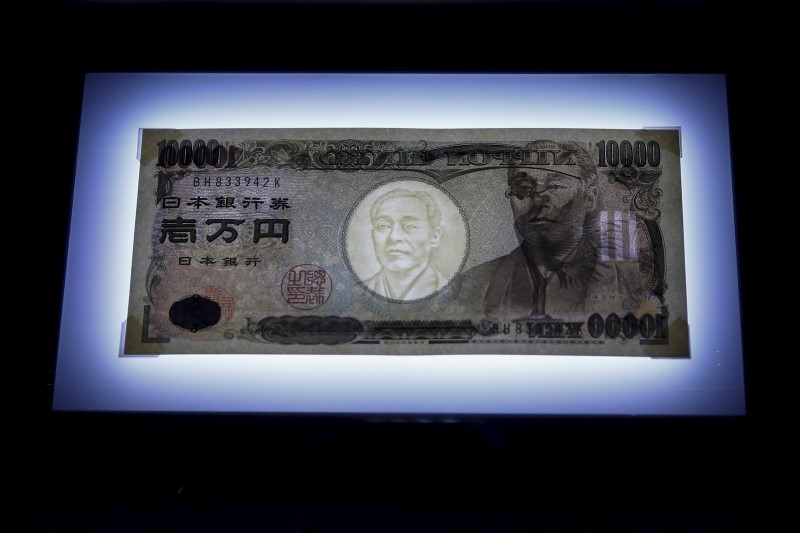By Leika Kihara
TOKYO (Reuters) – Japan will likely continue to intervene to support the yen until the risk of speculators triggering a currency freefall is eliminated, said a former central bank official involved in the Tokyo market launches a decade ago.
The yen rose on Thursday on what traders suspect was the second day of intervention, following such action on Monday to halt the currency’s sharp declines.
Japan’s finance ministry has refused to confirm whether it has intervened, leaving markets tense over the likelihood of another intervention.
Atsushi Takeuchi, who headed the Bank of Japan’s currency division when Tokyo intervened in 2010-2012, said Japan likely entered the market on Monday because of the yen’s sudden, large loss for a short period that day .
“Leaving a sudden move of 2-3 yen unattended in one day risks causing a yen freefall that heightens concerns about the yen and the broader economy,” Takeuchi said.
By intervening when the yen’s decline accelerates over a short period, authorities can maximize the psychological impact by keeping traders wary of the chance of more action, he said.
“The authorities will continue to intervene for as long as necessary to ensure they accomplish their mission of preventing speculative trading from causing a yen freefall,” he told Reuters on Thursday.
Members of the Group of Seven of advanced economies, including the United States, are unlikely to complain even if Tokyo continues to intervene, as long as the measures are aimed at tackling rapid, speculative moves in the yen, he said.
Remove ads
.
Takeuchi dismissed concerns from some market players that there were limits on how much of its $1.29 trillion in foreign reserves Japan can use to intervene, saying some of its U.S. government bonds could be difficult to sell.
“The whole point of Japan holding such huge foreign reserves is to prepare for cases like now where it needs to intervene,” Takeuchi said, emphasizing that the government has not invested in assets with low liquidity that are difficult to sell.
“It’s true that authorities need to consider the impact on the market when selling assets to finance interventions. But the US government bond market is huge, so that shouldn’t be a problem.”
Japan has historically focused on preventing sharp rises in the yen, which would hurt its export-dependent economy. Takeuchi participated in several yen selling interventions from 2010 to 2012. He is now a principal investigator at the Ricoh Institute of Sustainability and Business.
Under Japanese law, the government has jurisdiction over currency policy, while the BOJ acts as an agent of the Finance Ministry, which decides when to intervene.


